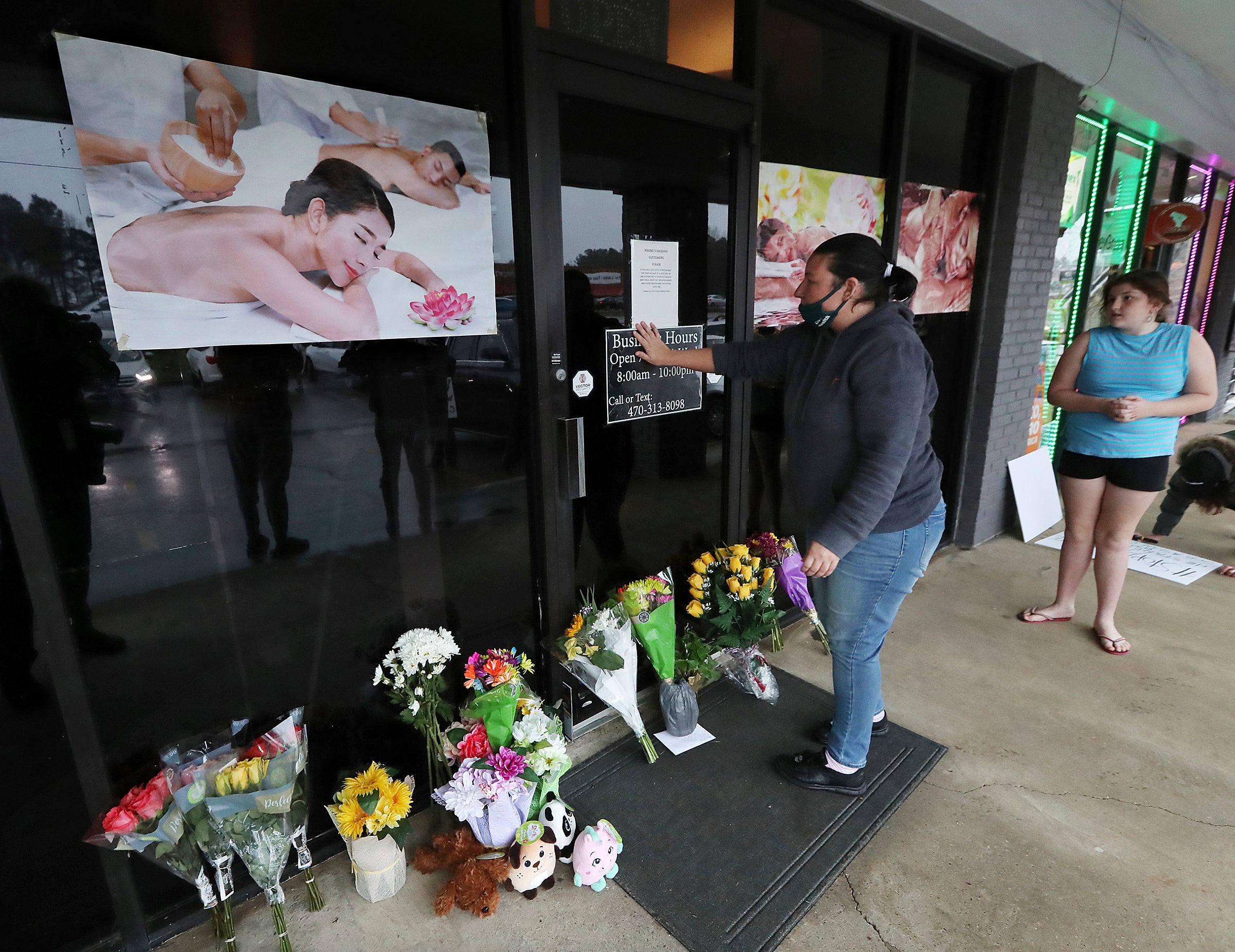The Independent's journalism is supported by our readers. When you purchase through links on our site, we may earn commission.
What Atlanta’s act of femicide tells us about men and sex workers
What’s the answer? It seems easy — but it isn’t


Another day in America, another eight lives lost to the cancer of white supremacy and misogyny.
Tuesday night’s Georgia shooting was a culmination of xenophobia, sexism, and whorephobia: the alleged shooter, Robert Allen Long, chose Asian massage businesses for a reason. According to law enforcement, he killed these women specifically to remove his individual sexual temptation, gunning down perceived sex workers in an “attack on the porn industry”. As much as this was an act of anti-Asian violence, it’s an act of anti-sex work violence and an act of femicide.
I can’t tell you how many jokes I’ve heard that turn a dead sex worker into a punchline. Sex-working women often face violence at the hands of men, both online and in real time, that goes unreported because we lack the support of systems that criminalize us. Sex workers have a 45 to 75 percent chance of being assaulted on the job, with transgender and migrant sex workers and sex workers of color having a higher chance of harm. At the same time, we can’t turn to the police in distress when the very fabric of our labor is illegal. We are everyday people: your teachers, nurses, makeup artists, mothers. I’ve worked at the United Nations and in award-winning newsrooms, but respectability won’t prevent me from being harmed by a client or harassed by men on the internet.
In this case, it doesn’t inherently matter if the massage workers were sex workers or not. It remains that they were targeted by someone who saw them as being sex workers.
The sex industry, and in turn, sex workers sit at an odd intersection of legality and morality. Some forms of sex work can technically be legal with certain stipulations, but all sex workers face a certain type of stigma for the labor they perform, and we all fall under the sex work umbrella. Contacting the police directly not only puts sex-working women at individual risk for arrest, but studies have shown that police often discriminate against and refuse to assist street-based sex workers, including those who’ve been raped. Additionally, 27 percent of women in one study reported that violence had been propagated against them by the police.
The solution seems easy, right? With the rise of direct-to-consumer porn and fansites and in the midst of pandemic lockdowns, it seems like getting on a site like Onlyfans would be an easy enough way to make safe money, and street and full-service sex work would fall to the wayside. However, that’s hardly the full story. Migrant content creators can’t access such platforms because as a creator, you need a bank account to attach to almost all of them. If someone needs money to feed their children that day, Onlyfans has a processing period. And with Nicholas Kristof’s recent article that led to MasterCard and Visa refusing to work with Pornhub, many independent porn performers are scrambling for a new way to get the income they need to survive.
Your average sex worker isn’t making tens of thousands of dollars — they’re working to pay for their food and shelter. It only requires $1,000 a month to be in the top 10 percent of Onlyfans performers. It stands to reason that most are making well below minimum wage.
Porn isn’t the problem, per se, but the fact that our society thrives on the exploitation of women’s labor, both sexual and emotional. The real issue, as usual, is the patriarchy.
So what’s the answer? How do we protect sex workers in a nation that actively devalues sexual labor and women’s labor, to the point of violence? Decriminalization of the sex trade is the only option.
Valentina Fox, a New York-based dominatrix, says, “Decriminalization is the first step to humanizing sex workers for the general public. Sex workers have hopes and dreams too. The women that were killed had hopes and dreams; they were complete and complex people with families who were killed for being [perceived as] sex workers. It’s dangerous that we’re grouped in with violent perpetrators of crime in the eyes of the public. It leads to hate and misunderstanding.”
Our legal system groups in consensual sex work with sex trafficking, which harms both trafficking victims and consensual sex-working women. With decriminalization of the sex trade, which is recommended by the World Health Organzation as a public health practice, more income from police departments could be directed to actual trafficking victims, and sex-working women could receive services from the police and government health organizations without fear of losing income or being reported as trafficked.
Decriminalization also comes with the added safety benefits that existed before FOSTA-SESTA kicked sex workers out of the digital sphere: client and provider screening boards where unsafe clients can be blacklisted, advertising forums, online and real-time support, and industry exit services. This doesn’t inherently prevent atrocities like the one in Georgia, but sex workers deserve the right to look into their clients’ history to assure their boundaries will be respected. In other words, they deserve the chance to take charge of their own safety. That should have always been the bare minimum.
Join our commenting forum
Join thought-provoking conversations, follow other Independent readers and see their replies
Comments
Bookmark popover
Removed from bookmarks